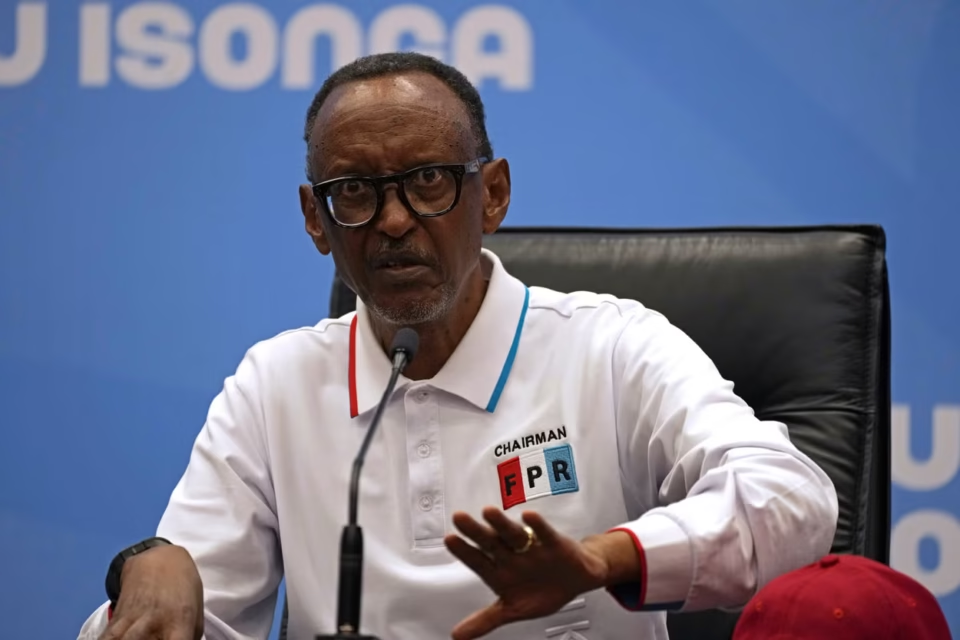Top Story: Kagame Urges Congo to Negotiate with M23 Rebels Amid Mounting Regional Tensions
Kigali, Rwanda – Rwandan President Paul Kagame on Thursday called on Congolese authorities to engage in direct negotiations with the M23 rebel group, which has recently captured key towns in eastern Democratic Republic of Congo (DR Congo), expanding its control in the volatile border region.
Speaking at a press conference in Kigali, Kagame warned that Kinshasa’s refusal to talk to M23 signals a lack of commitment to resolving the conflict politically. “There has to be an effort to continue finding a solution,” Kagame said. “The solution lies in internal political process, or dialogue.”
His comments come as M23, the most dominant of more than 100 armed groups operating in eastern Congo, tightened its grip on strategic locations in North Kivu province, including Katale and Masisi, located about 80 kilometers (50 miles) west of Goma, a key commercial hub and entry point into eastern Congo.
Congo Rejects Kagame’s Call
Congo’s government, which has long accused Rwanda of backing M23 militarily, swiftly rejected Kagame’s remarks. The United Nations estimates that as many as 4,000 Rwandan troops are operating inside Congolese territory in support of the rebels—a claim Kigali denies.
The Rwandan-backed M23 movement first emerged in 2012, briefly capturing Goma before retreating under international pressure. The group reemerged in 2021 and has since gained control over wide swathes of eastern Congo, displacing over a million people in the process. Its name stems from a March 23, 2009 peace accord—which M23 claims Kinshasa failed to honor.
A Fragile Ceasefire Already Crumbling
Despite a July ceasefire deal between Congo and M23, renewed clashes have erupted. The United States expressed deep concern, accusing the rebels of violating the agreement. In a rare statement in February, the U.S. formally labeled M23 a Rwanda-backed armed group and demanded that Kigali “immediately withdraw all Rwanda Defense Force personnel” and remove advanced missile systems from Congolese soil.
The UN’s panel of experts has reported “solid evidence” of Rwanda’s military operating inside Congo in support of M23—a finding Rwanda has consistently denied.
Kagame Cites Rwandan Security Concerns
In addition to pushing for negotiations with M23, Kagame pointed to the continued presence in eastern Congo of the FDLR (Democratic Forces for the Liberation of Rwanda), a militia that includes remnants of the perpetrators of the 1994 Rwandan genocide.
“The FDLR question has to be answered,” Kagame said, accusing the Congolese government of harboring the group and persecuting its own population, driving many to seek refuge in Rwanda.
Human Cost of the Rebellion
M23’s resurgence has triggered widespread panic in the region, with repeated offensives causing mass displacement and civilian suffering. While M23 leaders claim to protect civilians, their military advances often prompt mass evacuations, particularly in rural areas near the front lines.
The humanitarian toll continues to mount, with the UN warning of one of the world’s most dire displacement crises—more than 7 million Congolese are now displaced, many living in overcrowded camps with limited access to food and medical care.
As pressure grows for a political solution, Kagame’s call to negotiate with M23 is likely to deepen tensions between Kigali and Kinshasa—and test the resolve of regional and international actors seeking to prevent the conflict from spiraling further.
